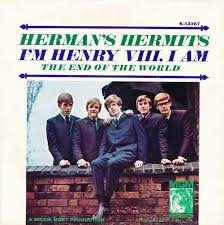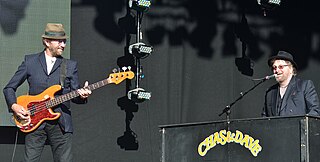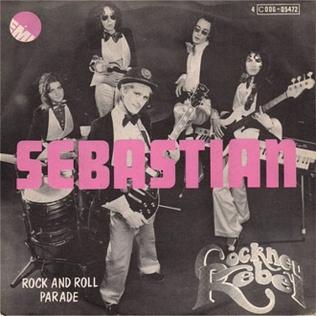Related Research Articles

Rhyming slang is a form of slang word construction in the English language. It is especially prevalent in the UK and Australia. It was first used in the early 19th century in the East End of London; hence its alternative name, Cockney rhyming slang. In the United States, especially the criminal underworld of the West Coast between 1880 and 1920, rhyming slang has sometimes been known as Australian slang.

Music hall is a type of British theatrical entertainment that was popular from the early Victorian era, beginning around 1850. It faded away after 1918 as the halls rebranded their entertainment as variety. Perceptions of a distinction in Britain between bold and scandalous Victorian Music Hall and subsequent, more respectable Variety differ. Music hall involved a mixture of popular songs, comedy, speciality acts, and variety entertainment. The term is derived from a type of theatre or venue in which such entertainment took place. In North America vaudeville was in some ways analogous to British music hall, featuring rousing songs and comic acts.

Harry Warren was an American composer and lyricist. Warren was the first major American songwriter to write primarily for film. He was nominated for the Academy Award for Best Original Song eleven times and won three Oscars for composing "Lullaby of Broadway", "You'll Never Know" and "On the Atchison, Topeka and the Santa Fe". He wrote the music for the first blockbuster film musical, 42nd Street, choreographed by Busby Berkeley, with whom he would collaborate on many musical films.

Arthur Lloyd was a Scottish singer, songwriter, comedian and impresario. Lloyd was the first prolific and successful singer-songwriter for music hall in the United Kingdom. He wrote more than 1,000 songs, many of which were performed by himself and others. One of his compositions, Not for Joseph was the first comic song to sell more than 100,000 copies. He established his own theatre company, opened a theatre in London, performed for royalty and toured extensively, touring North America in 1893–94.

"I'm Henery the Eighth, I Am" is a 1910 British music hall song by Fred Murray and R. P. Weston. It was a signature song of the music hall star Harry Champion.

Chas & Dave were a British pop rock duo, formed in London by Chas Hodges and Dave Peacock. Hodges died in 2018.
Glenn Slater is an American lyricist who collaborates with Alan Menken, Christopher Lennertz, Andrew Lloyd Webber, and other musical theatre composers. He was nominated for three Tony Awards for Best Original Score for the Broadway version of The Little Mermaid at the 62nd Tony Awards in 2008, Sister Act at the 65th Tony Awards in 2011, and School of Rock at the 70th Tony Awards in 2016.

William Henry Crump, better known by the stage name Harry Champion, was an English music hall composer, singer and comedian, whose onstage persona appealed chiefly to the working class communities of East London. His best-known recordings include "Boiled Beef and Carrots" (1909), "I'm Henery the Eighth, I Am" (1910), "Any Old Iron" (1911) and "A Little Bit of Cucumber" (1915).
"Boiled Beef and Carrots" is a comedic music hall song published in 1909. It was composed by Charles Collins and Fred Murray. The song was made famous by Harry Champion who sang it as part of his act and later recorded it. The song extols the virtues of a typical English, and particularly Cockney, dish.

Ernest Augustus Elen was an English music hall singer and comedian. He achieved success from 1891, performing cockney songs including "Arf a Pint of Ale", "It's a Great Big Shame", "Down the Road" and "If It Wasn't for the 'Ouses in Between" in a career lasting over thirty years.
Music hall songs were sung in the music halls by a variety of artistes. Most of them were comic in nature. There are a very large number of music hall songs, and most of them have been forgotten. In London between 1900 and 1910, a single publishing company, Francis, Day and Hunter, published between forty and fifty songs a month.
"Wot Cher! Knocked 'em in the Old Kent Road" is a British music hall comedy song written in 1891 by the actor and singer Albert Chevalier. The score was by his brother and manager Charles Ingle. Chevalier developed a stage persona as the archetypal Cockney and was a celebrated variety artist, with the nickname of "The Singing Costermonger". When first performed it was known simply as "Wot Cher!" The song describes the sudden endowment of apparent wealth on a poor family.

"With a Little Bit of Luck" is a popular song by Alan Jay Lerner and Frederick Loewe, written for the 1956 Broadway play My Fair Lady.

On Your Radar is the third studio album by British-Irish girl group The Saturdays. It was released 21 November 2011 under Fascination Records. The album was recorded in London, New York City, Oslo and Stockholm, with Steve Mac, who had been instrumental in the production of the band's previous albums, served as a producer on the album, with additional producers and songwriters also being included in the making of the record, including Lucas Secon, Taio Cruz, Labrinth, Tracklacers, Space Cowboy, Brian Higgins and Lucie Silvas.

Herbert Campbell, born Herbert Edward Story, was an English comedian and actor who appeared in music hall, Victorian burlesques and musical comedies during the Victorian era. He was famous for starring, for many years, in the Theatre Royal, Drury Lane's annual Christmas pantomimes, predominantly as a dame.

"Star for a Week (Dino)" is a pop-rock song by British singer-songwriter Steve Harley, which was released as a promotional single in 1993 from his third solo album Yes You Can. The single coincided with the UK release of the album that year. It was the second single to be released from the album, following "Irresistible" as a European single in 1992. "Star for a Week (Dino)" was written by Harley, and produced by Harley and Matt Butler.

"Sebastian" is a song by the British rock band Cockney Rebel, fronted by Steve Harley. It was released as the band's debut single in 1973 from their album The Human Menagerie. The song was written by Harley and produced by Neil Harrison.
This is a summary of 1915 in music in the United Kingdom.
Thomas Widdicombe, who wrote under the name T. W. Connor, was an English writer of popular songs and monologues for music hall performers in the late 19th and early 20th centuries.

"Let's All Go Down the Strand" is a popular British music hall song of the late 19th and early 20th centuries, written by Harry Castling and C. W. Murphy. It was first performed by Castling, and was published in 1909. It was inspired by the Strand, a street in Westminster, Central London, that in the late 19th century became a centre for theatres, hotels and music halls. The song has three verses describing people trying to persuade others to abandon their current plans to "go down the Strand". The first verse is about a group of tourists planning a trip to Germany, the second about prisoners in jail and the third about sailors returning with Ernest Shackleton from a polar expedition. The song was popular with British soldiers in the First World War. A refrain of "have a banana", not included in the published lyrics, was often interposed after the first line of the chorus. Sometimes "Gertie Gitana" was sung instead, leading to the use of "Gertie" as rhyming slang for the fruit. A version was released by rock band Blur in 1993.
References
- ↑ Peter Gammond (1971), Your Own, Your Very Own!: A Music Hall Scrapbook. London: Ian Allan
- ↑ Songs of the First World War accessed October 2011
- ↑ A Little Bit of Cucumber lyric sheet, Courtesy of International Lyrics Playground, accessed October 2011
- ↑ Oxford English Dictionary, 2nd edition, vol. VIII, p. 471.